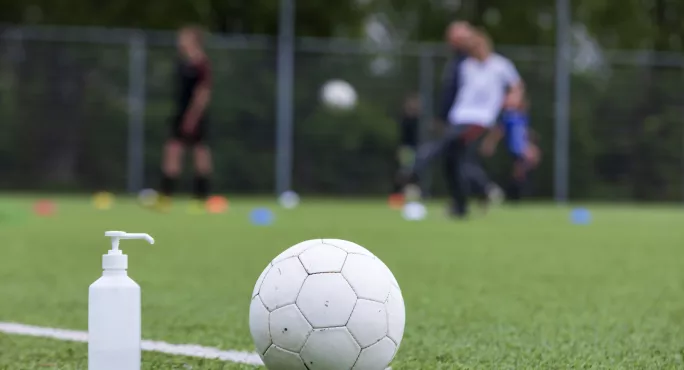Before Covid-19 hit, sport at our international school in Bangkok was busy and getting busier.
Our weekday league fixture list was non-stop, weekends were crammed full of various tournaments and our overseas trip calendar was bursting to the seams.
Staff were working hard, their teams stretched and bent in a myriad of ways.
But when the lockdown started in March, we had to radically reinvent our entire programme - starting by moving from the real world to the online world. Gaming consoles can somewhat recreate a version of sport, of course - but it’s just not the same.
‘Rebooting’ school sport
As such, when in late August restrictions started to ease, we, along with the other international schools in Bangkok, took the decision to “reboot” sport in September.
Of course, there was a lot to think about:
- Would we wear masks whilst playing? (No)
- Would visiting parents be allowed to attend away games? (No)
- Would we share equipment? (Yes, but with very regularly sanitising)
- What about parents’, students’ and teachers’ various concerns? (They were many but we would manage them)
- What about government restrictions? (We would follow them strictly, of course)
In fact, on the last point, we actually created a back-to-work handbook that had to be approved by the Ministry of Education that outlined our phased approach to getting back to “normal” to ensure that we were in line with its guidance.
We also published an eight-page co-curricular management plan where we mapped out the steps required to ensure that sport and the co-curricular programme would be rebooted.
Why sport matters
This all took time and, of course, there was a lot else going on at the time. Some may question why we did all this for sport.
But sport matters deeply in school life. It’s not the headline scores of a fixture but the reasons why sport is so culturally interlaced in our society: it’s a place for competition, camaraderie, for releasing energy, for celebrating triumph, embracing defeat, saying “well done” to a rival, and more again.
And while it was a lot of work, seeing our pupils back out and playing and excelling in their sporting accomplishments made it all worthwhile.
In fact, they were clearly raring to go.
Back with a bang
Indeed, just this weekend our local conference (BISAC) has just completed its first series of tournaments. There were 10 schools competing in both boys and girls varsity (U19) volleyball and football. In addition to climbing, golf and a friendly U13 and U15 basketball tournament.
The standard of competition was high, probably higher than previous years. A five-under-par on the golf course was only good enough for second place! Why? Perhaps pent up excitement? Plenty of practice at home for seven months?
Whatever the reason, it was great to see.
It’s not quite the same as before: friendly fixtures have replaced the demanding league structure, and our overseas travel calendar has been curtailed, probably for the year, but local replacement tournaments are taking their place.
But the main thing is that sport is back and the feeling is overwhelmingly positive. Students, coaches and parents are focusing on the enjoyment of the game, the challenge, the competition, the contest and a form of normality that it brings.
Planning meetings continue and pitch and court space is becoming increasingly tight as more and more students are playing sport. It’s a great problem to have!
Overall, all the hard work, hurdles and headaches were worth it because school without sport is just not a school.
Paul Rotheram is director of sport at Shrewsbury International School in Thailand
